Agatha Christie
South Lodge at Greenway, Devon
The main house is so well preserved it’s as if Agatha Christie just stepped outside. In the drawing room it takes little imagination to picture yourself listening to one of her manuscript readings. If you are inclined to detective work, you’ll work out for yourself that the scratch marks on the bedroom door were made by the family dog. Christie’s holiday house, Greenway, is gracious and beautifully proportioned. It sits high above the River Dart, amid extensive grounds that slope steeply down to the water. “The loveliest place in the world,” is how she described it. Christie left it to her daughter, who passed it to her son, and he gifted it to the National Trust in 2005. Staying in South Lodge – once the gardener’s cottage, and one of three NT cottages to rent on the estate – you could spend all day watching light dance on the river, boats passing and the steam train puffing through woods to Greenway Halt. Wander down through the gardens, past the Battery with its two cannons (site of the murder in Five Little Pigs) and you’ll arrive at the Boathouse, which Christie used as a location for a grisly murder in Dead Man’s Folly. It also appeared in the 2013 film adaptation, David Suchet’s last appearance as Poirot. Ring the bell at the quay and a ferryman arrives to take you across to Dittisham for lunch at the atmospheric Ferry Boat Inn, or take a cruise to Dartmouth on the Christie Belle riverboat and look back at the house from the water – elusive, fascinating, like all the best mysteries.
• Sleeps 6, from £621 for two nights, nationaltrust.org.uk
William Shakespeare
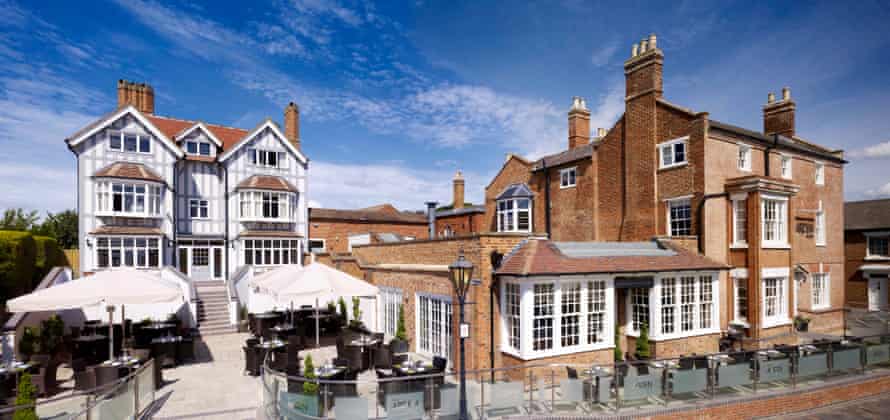
The Arden Hotel, Stratford
Until recently, William Shakespeare was the traditional draw for any stay at Stratford-upon-Avon, but since Maggie O’Farrell’s Hamnet his wife Anne Hathaway has rather taken centre stage. What sort of woman was she? How did she and Shakespeare cope with the loss of their 11-year-old son, Hamnet, to the plague? These are the questions O’Farrell imagines, and they certainly make a trip around the Shakespeare Birthplace Trust a more evocative one, particularly the 500-year-old thatched cottage where Shakespeare courted his bride-to-be. The award-winning gardens of Anne Hathaway’s Cottage (Cottage Lane, Shottery) are worth a visit, too. The Arden Hotel, chic, contemporary and only a stone’s throw from the Royal Shakespeare Company, is the perfect base to visit all this. Rooms are comfortable with deep marble baths and fluffy bathrobes. Breakfast in bed is a sumptuous affair. There’s also a cosy afternoon tea lounge and tempting brasserie food (the beetroot arancini with goat’s cheese mousse is particularly good, as is their fish and chips). What better way to re-charge and soak up all that literary history?
• Bed and breakfast from £119 a night, theardenhotelstratford.com
Alfred Lord Tennyson
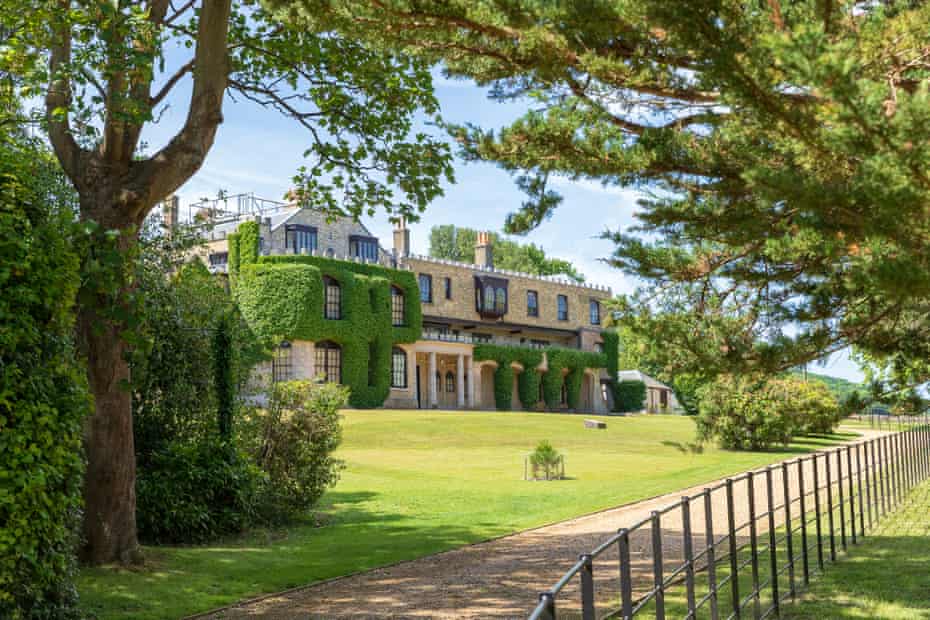
Farringford House, Isle of Wight
Getting to the Isle of Wight is thankfully less arduous today than it was in 1853 when Alfred Lord Tennyson and his wife Emily needed a rowing boat to cross the Solent while house hunting for a new family home. The couple settled on Farringford House, an imposing Georgian mansion, where the poet laureate lived for the next 39 years, welcoming a host of literary house guests, including Lewis Carroll and Edward Lear. The stables and other outbuildings on the edge of the estate have been turned into a range of characterful self-catering, dog-friendly accommodation, sleeping from two to eight, with access to the grounds overlooking Freshwater Bay. Sadly the summer house where Tennyson wrote Maud, Enoch Arden and The Charge of the Light Brigade has not survived, but the original walled kitchen garden has been restored, based on Emily’s journals, with the planting of apple and quince trees. There’s a tennis court available free of charge, while the grounds adjoin a National Trust trail that weaves its way along chalk grasslands towards the Needles – a path that’s largely unchanged from the time when Tennyson would take his daily walk along the clifftops in his flowing black cloak and broad-brimmed hat.
• Accommodation options for 2-7 people. A two-night stay for 2 from £146, farringford.co.uk
Nancy Mitford
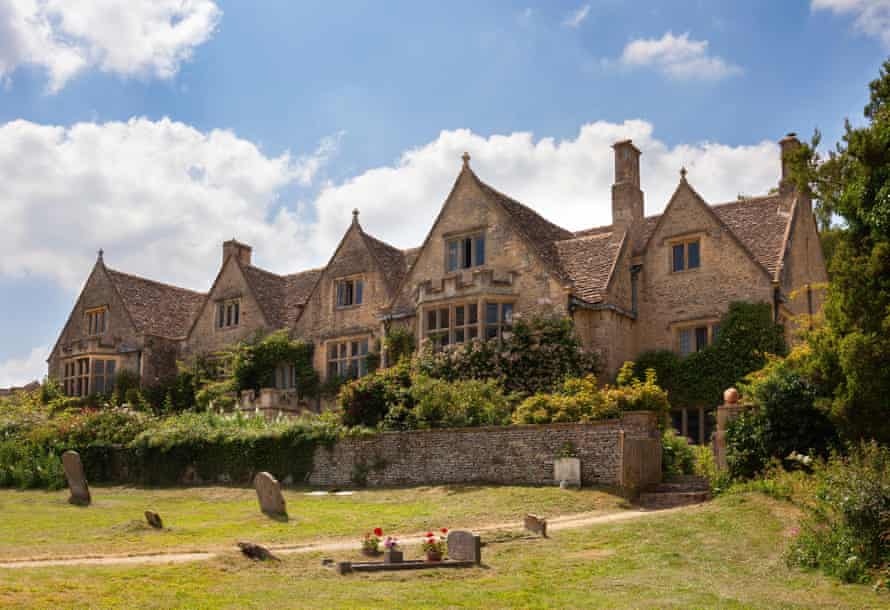
Asthall Manor, Oxfordshire
One of the Cotswolds’ most beautiful Jacobean houses, Asthall Manor was home to Nancy Mitford and her family during the 1920s and became the fictionalised Alconleigh in her novels The Pursuit of Love and Love in a Cold Climate. One wing of the house has been turned into a bohemian two-bedroom apartment decorated with Nancy’s hand-painted murals and set above the family’s former library and music room. It includes access to a private garden.
• Sleeps 3, from £367 a week, manorcottages.co.uk
Sir John Betjeman
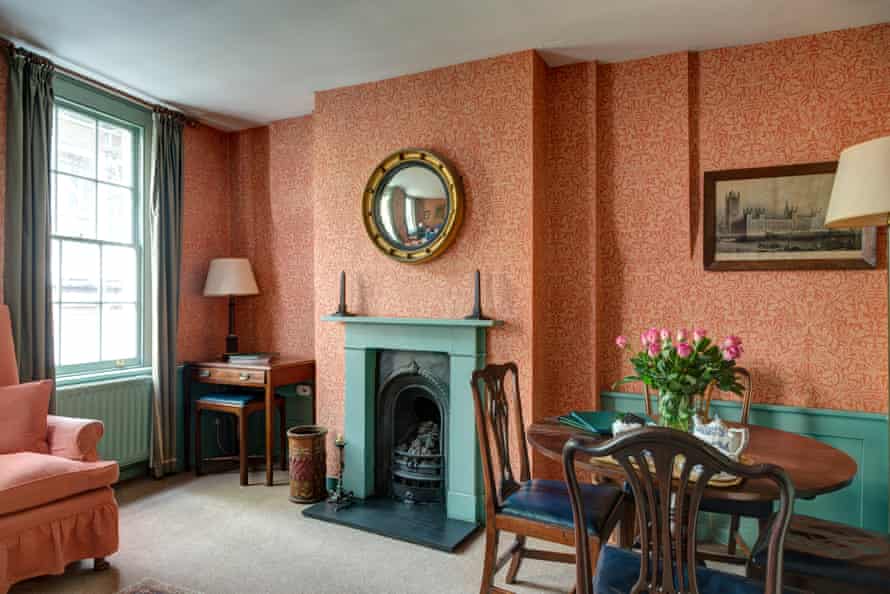
43 Cloth Fair, London
The poet spent 20 years living in this Georgian house, located in an atmospheric alleyway near Smithfield Market. It’s named after the cloth merchants who gathered there during Bartholomew Fair. Overlooking the churchyard of St Bartholomew the Great, the one-bedroom property reflects Betjeman’s taste for William Morris wallpaper and has a small roof terrace. Larger groups can rent the neighbouring apartment, which sleeps four.
• Sleeps 2, from £770 for four nights, landmarktrust.org.uk
Vita Sackville-West
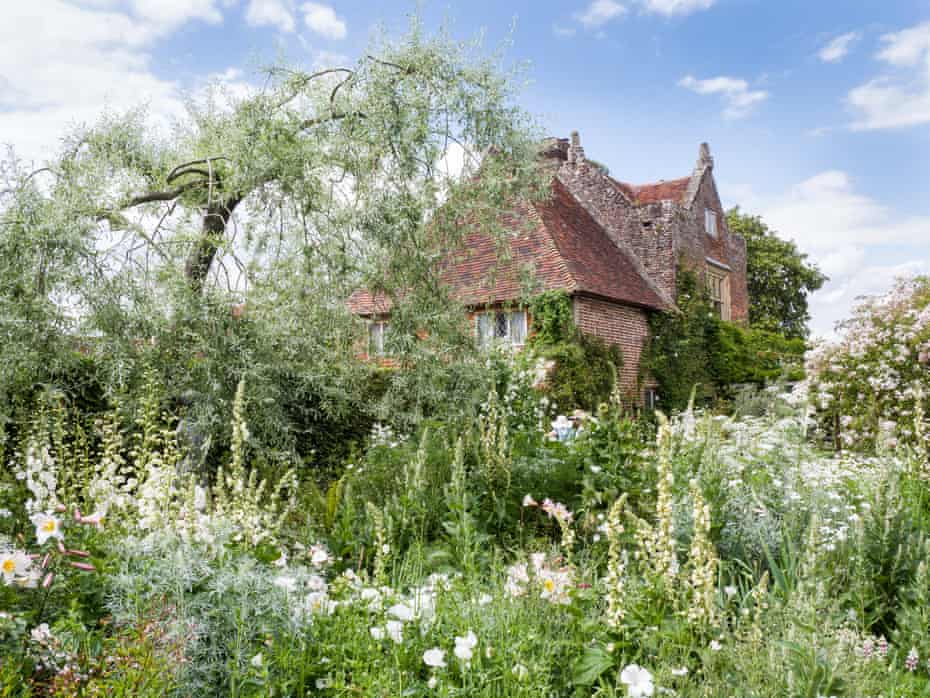
Priest’s House, Cranbrook, Kent
Wander through Sissinghurst Castle’s world-renowned gardens without the crowds by staying at this red-brick cottage located in the grounds of the Elizabethan manor house where the Bloomsbury writer and gardener lived for more than 30 years. Sackville-West died in the cottage, now restored, which offers out-of-hours access to Sissinghurst’s formal but intimate gardens, including the box-hedged white garden. Alternatively, for B&B, the Sissinghurst Castle Farmhouse, also restored by the National Trust, provides rooms with views across the estate or towards the tower where Sackville-West wrote All Passion Spent and her weekly Observer gardening column.
• Sleeps 6, from £621 for three nights, nationaltrust.org.uk
John Keats
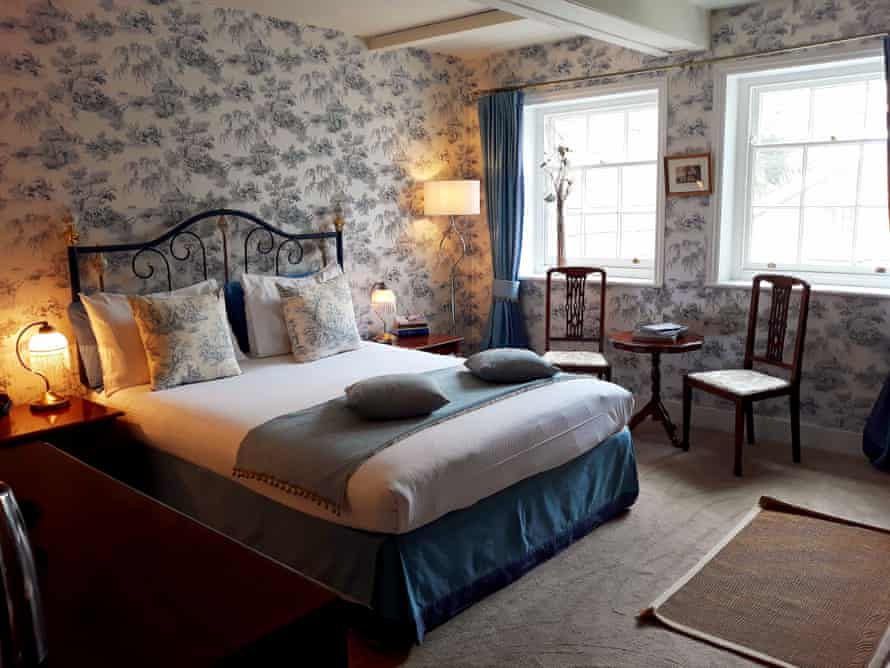
Keats Cottage, Shanklin, Isle of Wight
A cash-strapped Keats took lodgings at Eglantine Cottage (now renamed Keats Cottage) for the summer of 1819, working on his narrative poem Lamia and now-neglected play Otho the Great, while writing tortured love letters to his “sweet girl” Fanny Brawne. Five minutes from the sea, the cottage is now a B&B, and also offers a two-bed flat.
• Sleeps 5, from £195 a night, keatscottage.co.uk
DH Lawrence
Sons and Lovers Cottage, Nottingham
DH Lawrence spent his early childhood in this 1880s terraced coalminer’s house and used it as inspiration for Paul Morel’s house in Sons and Lovers. The downstairs is now a museum, while two bedrooms in the attic (sleeping five) provide a no-frills base from which to explore the Lawrence literary trail, including the house where he was born on nearby Victoria Street, now a museum.
• Sleeps 5, from £50 a night, stayinbritain.co.uk
Bruce Chatwin
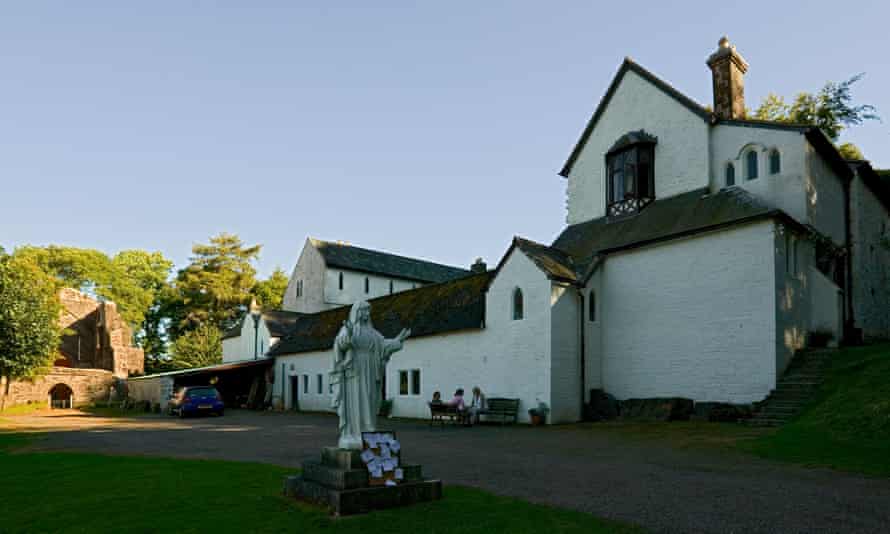
Capel-Y-Ffin Monastery, Monmouthshire
Set in the Llanthony Valley, eight miles from Hay-on-Wye, the tranquil hamlet of Capel-Y-Ffin provided inspiration for Bruce Chatwin’s On the Black Hill, while Allen Ginsberg declared the region “heaven balanced on a grassblade” after dropping LSD during a stay at publisher Tom Maschler’s nearby holiday home. The whitewashed Victorian monastery, once home to sculptor and printmaker Eric Gill (he designed the Gill Sans typeface while living here), has been converted into self-catering apartments.
• Sleeps 2-14, from £150 for two nights, capelmonastery.co.uk
Ted Hughes
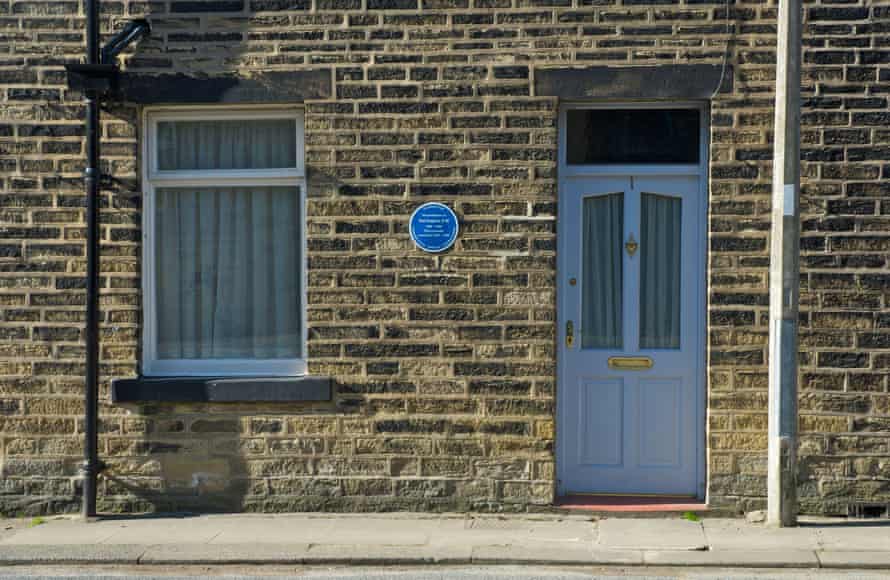
Aspinall Street, near Hebden Bridge, West Yorkshire
The poet laureate spent his early years in the Yorkshire village of Mytholmroyd, a few miles from Heptonstall where Sylvia Plath is buried, and his childhood home has been carefully restored and decorated in 1930s style, including the attic room where Hughes slept as a child. Sleeping four, it’s just 10 miles from Haworth and surrounded by the fields, moorlands and “hills full of savage promise” where he found much of the inspiration for his poetry.
• Sleeps 4, price on application, yorkshire-cottages.info
Edmund Blunden
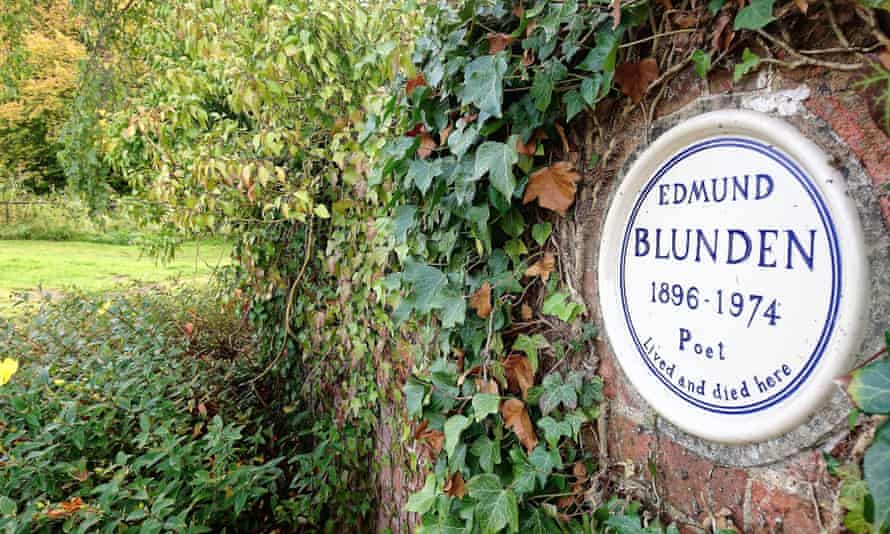
The Mill, Long Melford, Suffolk
War poet Edmund Blunden saw two years of action at Ypres and the Somme, surviving to write of the horrors of “brute guns lowing at the skies”. He retired to a former mill house in Suffolk for the last decade of his life, and it’s now a B&B with two double bedrooms, including Blunden’s spacious former study which has a logburner and access to a private garden.
• Sleeps 2-4, from £110 per room per night, themill-longmelford.com
Check individual Covid refund and rescheduling policies before you book





